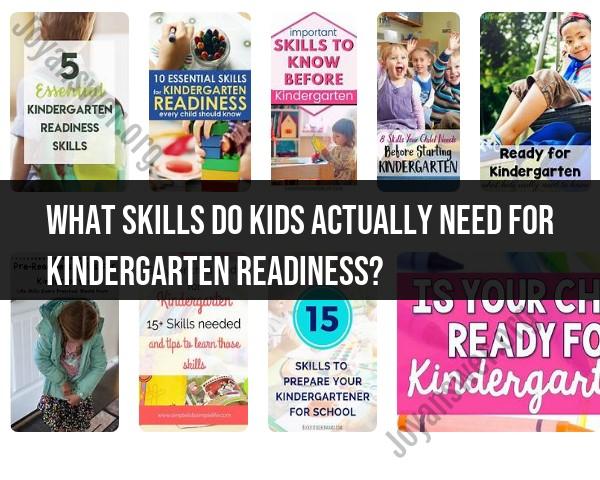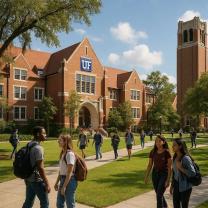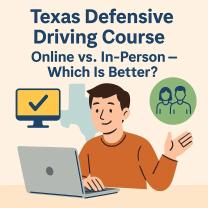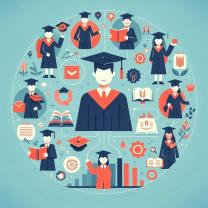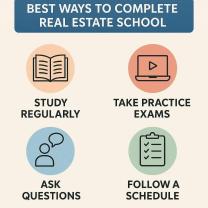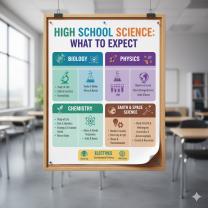What skills do kids actually need for kindergarten readiness?
Kindergarten readiness is a critical milestone in a child's educational journey. While the specific skills needed may vary by region and school district, there are some common essential skills that children should have before starting kindergarten. These skills are typically categorized into various domains, including:
Language and Literacy Skills:
- Expressive and receptive language skills: The ability to communicate needs, listen to and follow instructions, and engage in conversations.
- Letter recognition: Being able to identify and name letters of the alphabet.
- Phonemic awareness: Understanding that words are made up of individual sounds and recognizing rhyming words.
- Print awareness: Understanding how to handle a book, including reading from left to right and top to bottom.
- Early reading skills: Recognizing some sight words and demonstrating an interest in books and stories.
Math Skills:
- Number recognition: Identifying and naming numbers from 1 to 10 or higher.
- Counting: Counting objects and understanding basic counting principles.
- Sorting and classifying: Categorizing objects based on attributes like size, shape, or color.
- Basic shapes and colors: Recognizing and naming common shapes and colors.
Fine Motor Skills:
- Pencil grip: Developing the fine motor skills necessary to hold and use a pencil or crayon.
- Cutting and gluing: Using safety scissors and glue to complete simple craft activities.
- Tracing and drawing basic shapes and lines.
Gross Motor Skills:
- Physical coordination: Running, jumping, skipping, and other basic movements.
- Balance and coordination: The ability to balance on one foot and perform basic physical activities.
Social and Emotional Skills:
- Social interaction: The ability to play and cooperate with other children.
- Emotional regulation: Recognizing and expressing emotions in a healthy way.
- Following rules and routines: Understanding and following classroom rules and daily routines.
Independence Skills:
- Self-help skills: Dressing and undressing, using the restroom independently, and managing personal belongings.
Cognitive Skills:
- Problem-solving: Basic problem-solving skills, such as figuring out how to complete simple tasks.
- Curiosity and exploration: Demonstrating an interest in the world, asking questions, and seeking answers.
- Memory and attention: The ability to remember and follow instructions or complete multi-step tasks.
Listening and Attention:
- The capacity to listen to a story, follow directions, and stay engaged in a task for an appropriate duration.
Basic Knowledge:
- General knowledge of the world, including seasons, animals, and common objects.
Resilience and Persistence:
- Developing a mindset of resilience and persistence in the face of challenges and setbacks.
Keep in mind that not all children develop at the same pace, and kindergarten readiness is not solely about academic skills. Social and emotional development, independence, and the ability to adapt to a structured classroom environment are equally important.
Parents, caregivers, and preschool teachers can play a crucial role in helping children develop these skills through play, conversation, and age-appropriate activities. Additionally, it's important to check with your local school or educational authorities to understand the specific kindergarten readiness expectations and requirements in your area.
What specific cognitive skills are essential for kindergarten readiness in children?
Cognitive skills are the mental processes that help us learn, think, and understand the world around us. Some specific cognitive skills that are essential for kindergarten readiness include:
- Language and literacy skills: These skills include the ability to understand and use spoken language, as well as the ability to recognize and manipulate letters and words.
- Numeracy skills: These skills include the ability to understand and use numbers and basic math concepts.
- Problem-solving skills: These skills include the ability to identify and solve problems.
- Critical thinking skills: These skills include the ability to think clearly and rationally, and to make sound decisions.
- Cognitive flexibility: This skill is the ability to adapt to new situations and to think outside the box.
How do fine motor skills contribute to a child's readiness for kindergarten?
Fine motor skills are the small muscle movements that we use to manipulate objects with our hands and fingers. These skills are essential for many kindergarten activities, such as writing, drawing, and cutting with scissors.
Children with strong fine motor skills are more likely to be successful in kindergarten because they are able to complete tasks quickly and easily. They are also less likely to become frustrated or discouraged when they are faced with challenging tasks.
What are some effective strategies for teaching early literacy and numeracy skills to preschoolers?
There are a number of effective strategies for teaching early literacy and numeracy skills to preschoolers. Some of these strategies include:
- Making learning fun and engaging: Preschoolers learn best through play and exploration. Therefore, it is important to make early literacy and numeracy activities fun and engaging for children.
- Reading to children every day: Reading to children is one of the best ways to help them develop early literacy skills. When reading to children, it is important to talk about the pictures and stories. This helps children to develop their comprehension skills.
- Playing games and puzzles: Games and puzzles are a great way to help children develop early literacy and numeracy skills. For example, playing word games can help children to learn about letters and sounds. Playing number games can help children to learn about numbers and basic math concepts.
- Providing children with a variety of materials: Children need access to a variety of materials in order to develop their early literacy and numeracy skills. This includes books, puzzles, games, and writing materials.
How do social and emotional skills play a role in a child's kindergarten readiness?
Social and emotional skills are just as important as cognitive skills for kindergarten readiness. Children with strong social and emotional skills are better able to adjust to the kindergarten classroom and to interact with their peers and teachers.
Some important social and emotional skills for kindergarten readiness include:
- Self-regulation: This skill is the ability to manage one's own emotions and behavior.
- Social-emotional competence: This skill is the ability to understand and manage one's own emotions, as well as the emotions of others.
- Problem-solving skills: This skill is the ability to identify and solve problems in a social and emotional context.
- Resilience: This skill is the ability to bounce back from difficult experiences.
What are the benefits of early childhood education programs for kindergarten preparation?
Early childhood education programs can provide children with the skills and knowledge they need to be successful in kindergarten. These programs typically focus on developing children's cognitive, social, and emotional skills.
Research has shown that children who attend early childhood education programs are more likely to be ready for kindergarten and to succeed in school. They are also more likely to graduate from high school and to go on to college.
Here are some of the specific benefits of early childhood education programs for kindergarten preparation:
- Children in early childhood education programs develop stronger cognitive skills. This includes skills such as language and literacy, numeracy, and problem-solving.
- Children in early childhood education programs develop stronger social and emotional skills. This includes skills such as self-regulation, social-emotional competence, and resilience.
- Children in early childhood education programs are more likely to be ready for kindergarten. This includes having the skills and knowledge they need to succeed in the kindergarten classroom.
- Children in early childhood education programs are more likely to succeed in school. This includes being more likely to graduate from high school and to go on to college.
Overall, early childhood education programs can provide children with a strong foundation for success in kindergarten and beyond.
